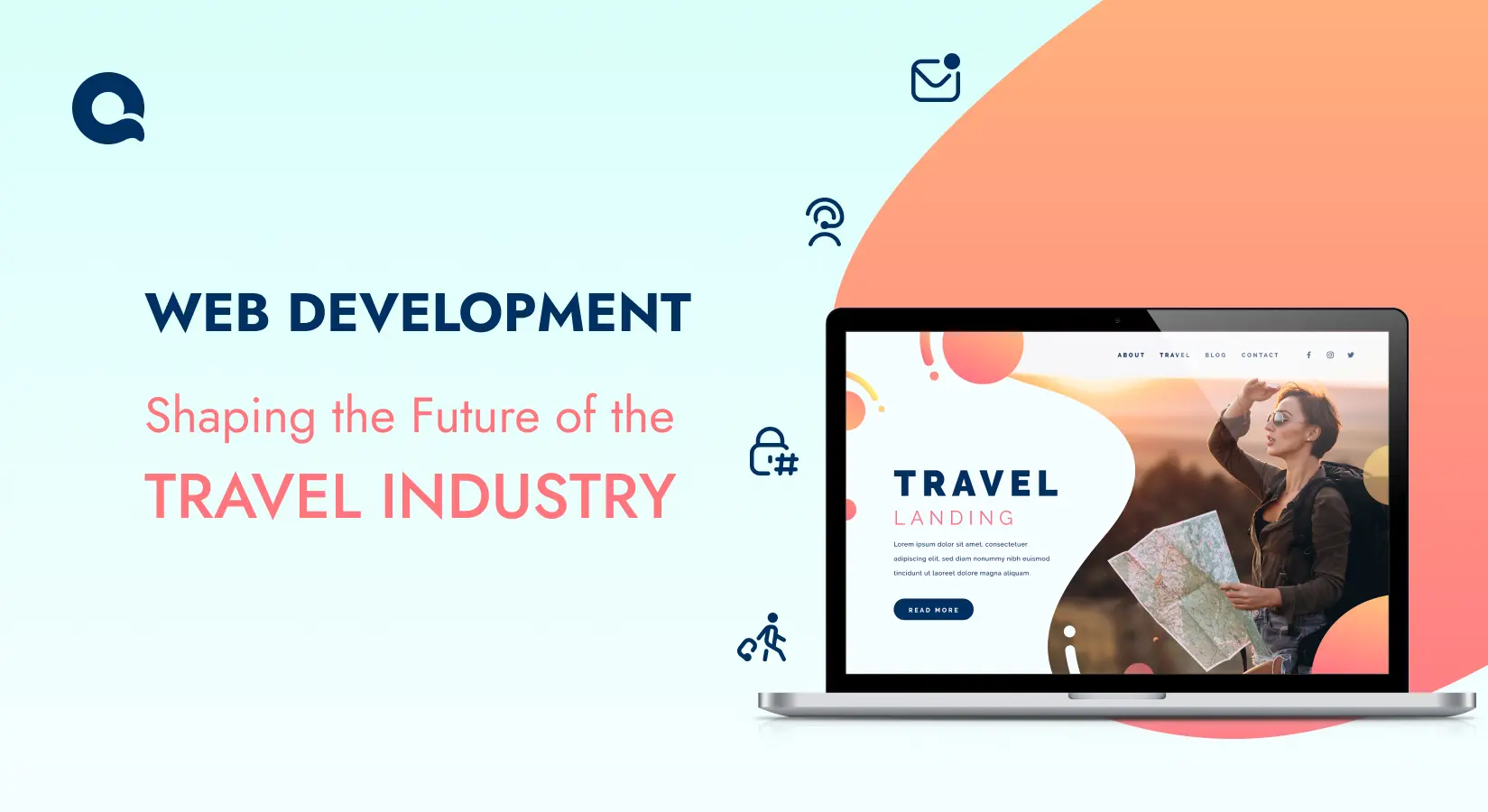
In today’s digital age, the travel industry has undergone a significant transformation, driven largely by advancements in web development. From seamless booking platforms to immersive virtual experiences, web development has become a cornerstone of innovation in the travel sector. This blog explores how web development is shaping the future of the travel industry and the benefits it brings to businesses and travelers alike.
1. Enhanced Online Booking Systems
One of the most profound impacts of web development is the evolution of online booking platforms. Traditional travel agencies are now supplemented by intuitive websites and apps that allow users to:
- Compare prices across airlines, hotels, and car rentals.
- Book trips in real time with secure payment gateways.
- Access personalized recommendations based on browsing behavior.
2. Personalization Through Artificial Intelligence (AI)
Web development integrated with AI-powered tools has revolutionized the travel experience by providing personalized services. Websites and travel apps now use AI to analyze user preferences, enabling them to:
- Recommend destinations tailored to user interests.
- Suggest travel packages based on past bookings.
- Offer dynamic pricing for competitive deals.
3. Virtual Tours and Immersive Experiences
With web development advancements, travelers can now explore destinations virtually before making decisions. Virtual reality (VR) and augmented reality (AR) integrated into websites allow users to:
- Take 360-degree virtual tours of hotels and attractions.
- Visualize experiences like hiking trails or city tours.
- Preview accommodations and travel routes.
4. Mobile-First Development
In an era where smartphones dominate, mobile-first web development is essential for the travel industry. Travelers rely heavily on their devices to:
- Search for destinations.
- Access booking confirmations and itineraries.
- Navigate using travel apps.
5. Seamless Integration with Third-Party Services
Modern travel websites are increasingly integrated with third-party services to provide comprehensive solutions. These integrations include:
- Payment gateways for secure transactions.
- APIs for real-time flight and hotel availability.
- Social media plugins for sharing travel experiences.
6. Real-Time Updates and Notifications
Web development enables travel companies to keep their customers informed with real-time updates. This includes:
- Flight delays or cancellations.
- Weather updates for chosen destinations.
- Itinerary changes or reminders.
7. User Reviews and Social Proof
Web development has empowered travelers to make decisions based on genuine user reviews. Features like:
- Customer ratings for hotels, airlines, and tours.
- Detailed feedback on experiences.
- Social media integration for shared posts.
8. Data Security and Privacy
With the rise of online bookings and transactions, data security has become a top priority. Modern web development incorporates:
- SSL encryption for secure transactions.
- GDPR compliance for data privacy.
- Two-factor authentication for user accounts.
9. Sustainability and Green Travel
Web development also promotes eco-friendly travel by offering features such as:
- Highlighting sustainable travel options.
- Carbon footprint calculators for trips.
- Promoting eco-friendly accommodations and tours.
10. Streamlined Customer Support
Modern travel websites now include efficient customer support features such as:
- Live chatbots for instant query resolution.
- 24/7 support via messaging apps.
- FAQs and self-help sections.
Conclusion
Web development is undoubtedly reshaping the future of the travel industry by offering innovative solutions that enhance customer experiences and streamline business operations. From personalized recommendations and virtual tours to secure transactions and mobile-first designs, the possibilities are endless.
As the travel industry continues to evolve, businesses that leverage advanced web development technologies will stay ahead of the curve. By adopting these trends, companies can build stronger connections with their customers and ensure long-term success in this dynamic sector.
Frequently asked questions
Web development streamlines the booking process by offering easy-to-navigate platforms with features like live availability, secure payments, and tailored travel suggestions for users.
The mobile-friendly design ensures that travelers can easily search, book, and manage trips directly from their smartphones, making the process convenient and accessible from anywhere.
Virtual tours allow users to explore destinations, accommodations, and attractions online, helping them make confident decisions before finalizing their bookings.
Travel websites implement features like data encryption, secure payment gateways, and compliance with privacy laws to protect user information and maintain trust.






